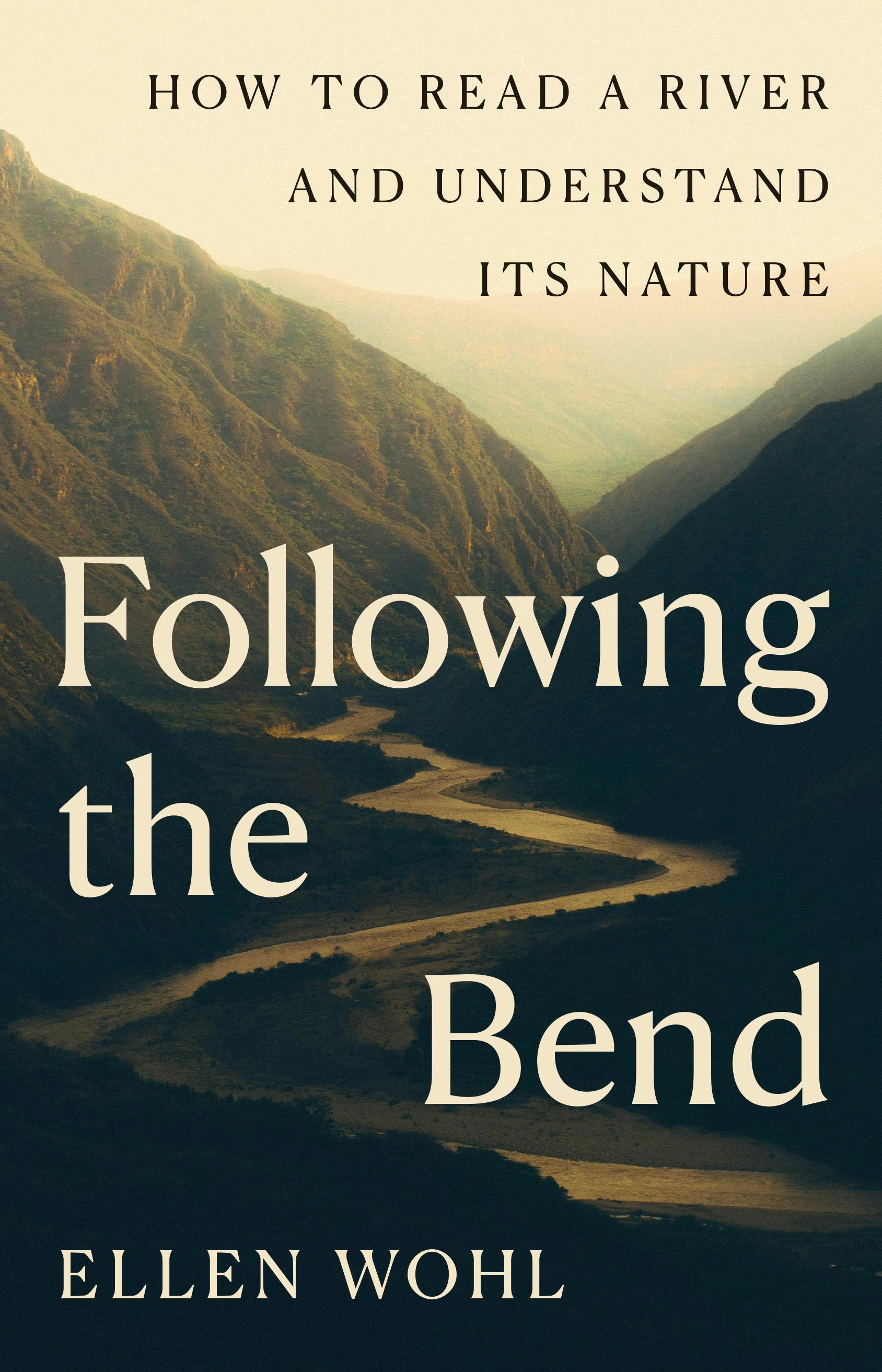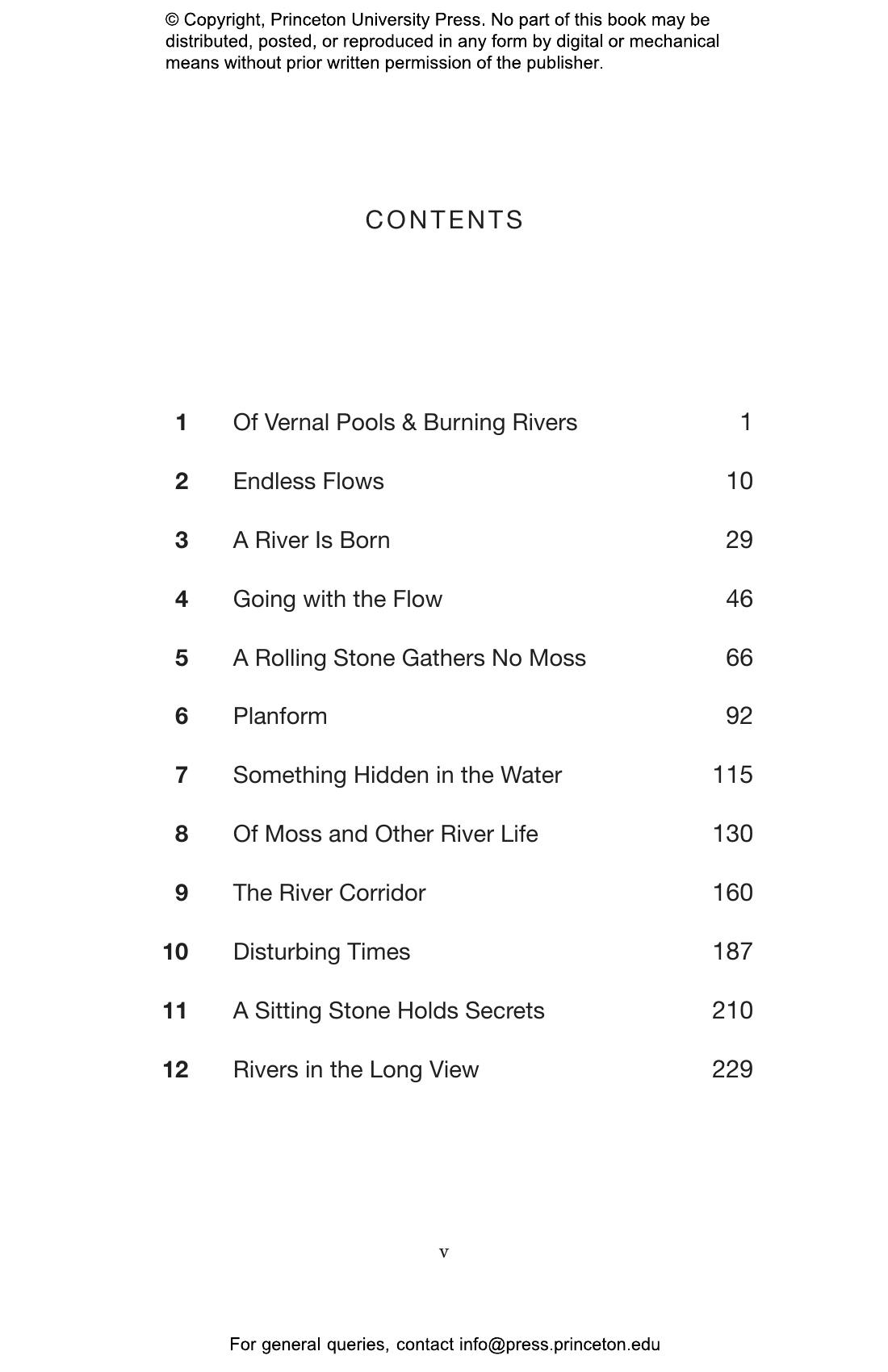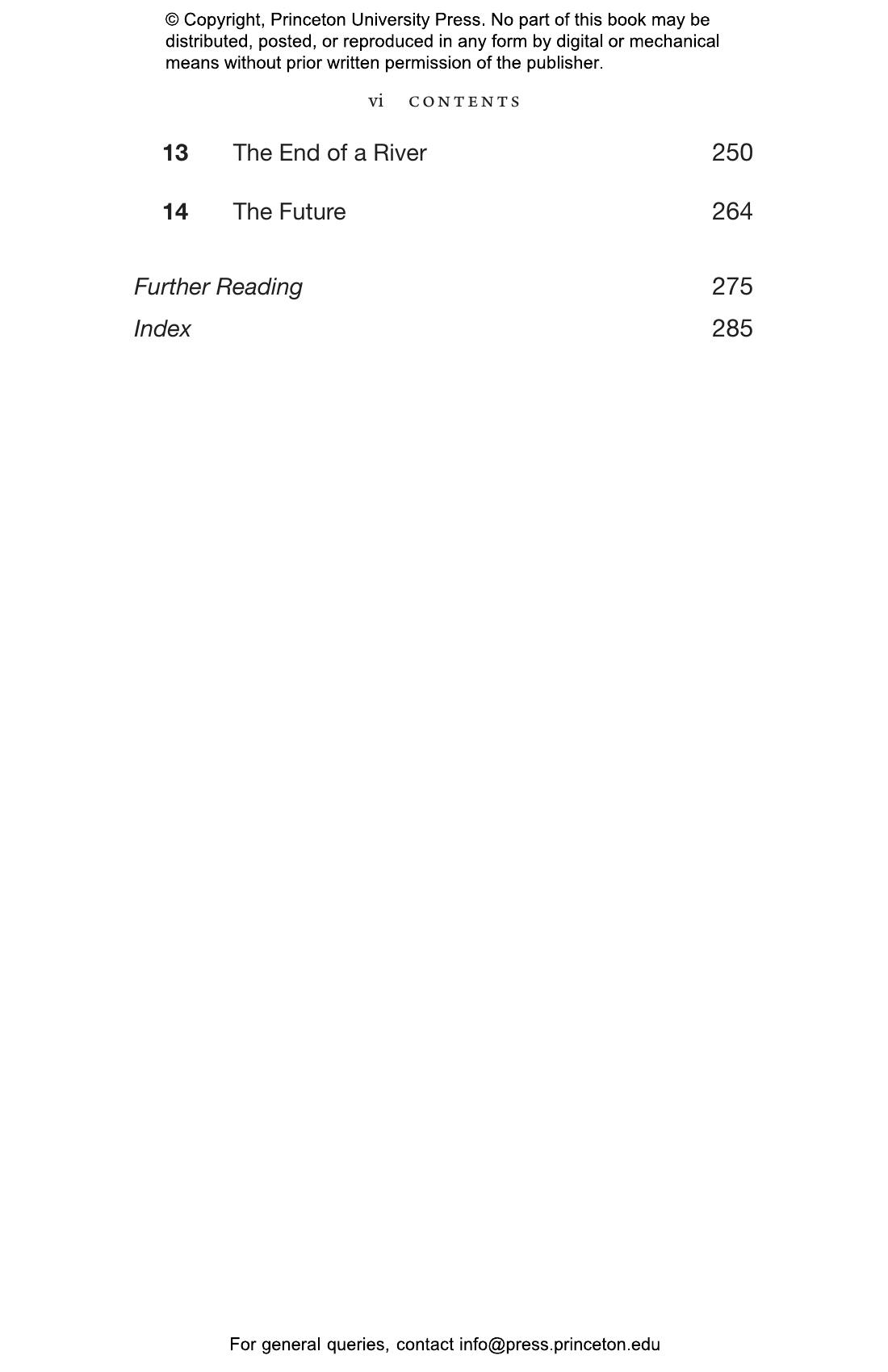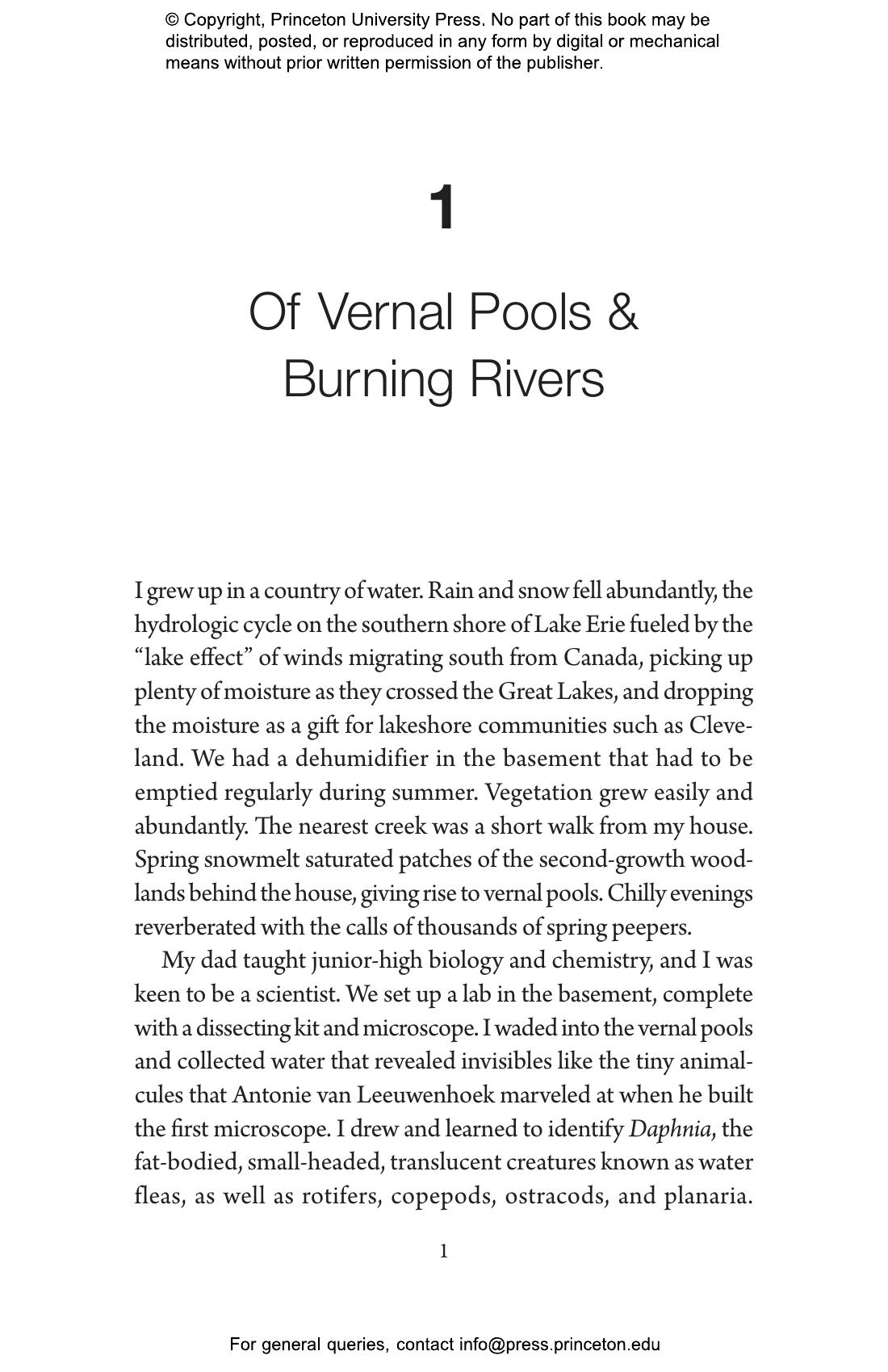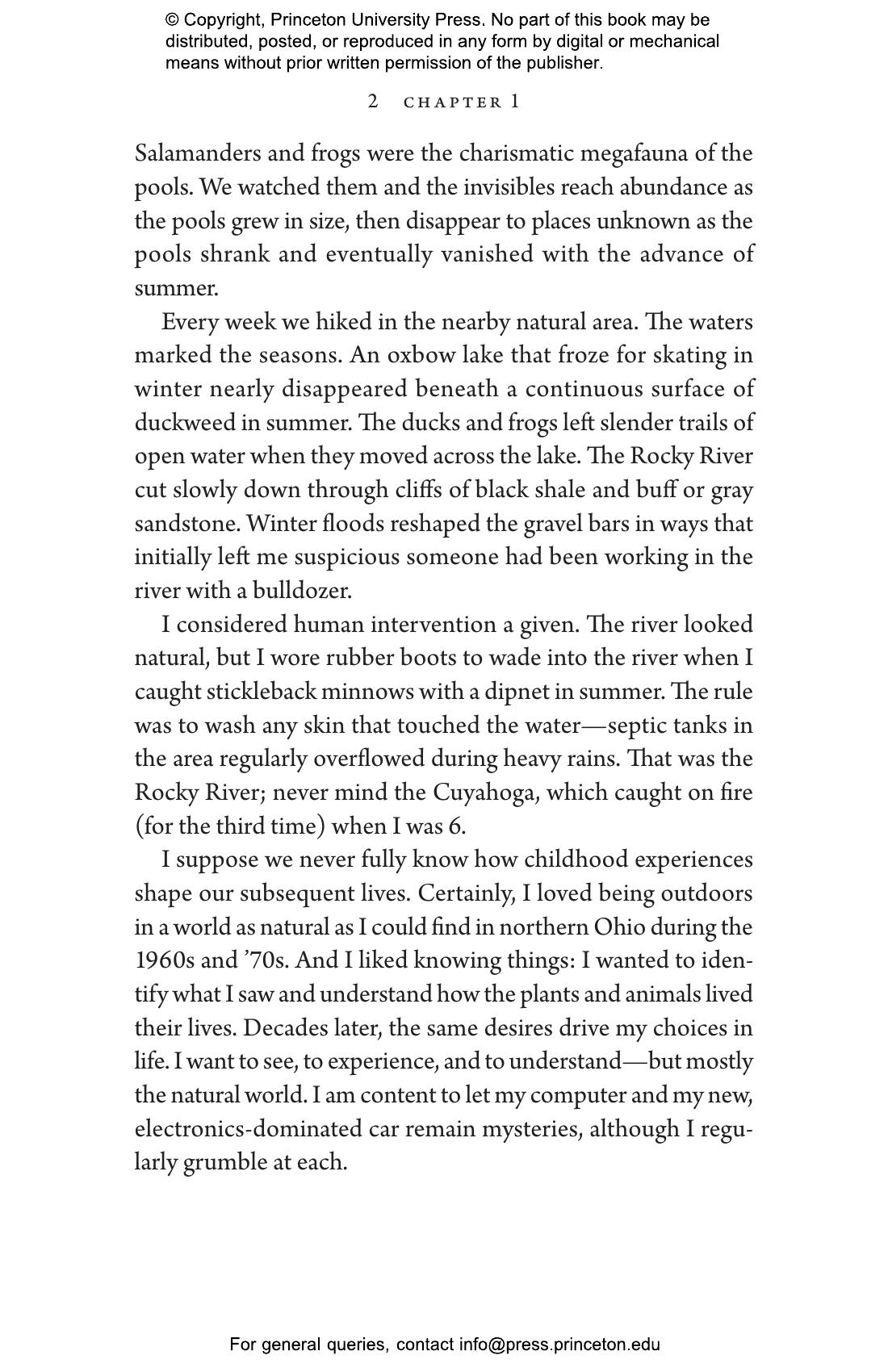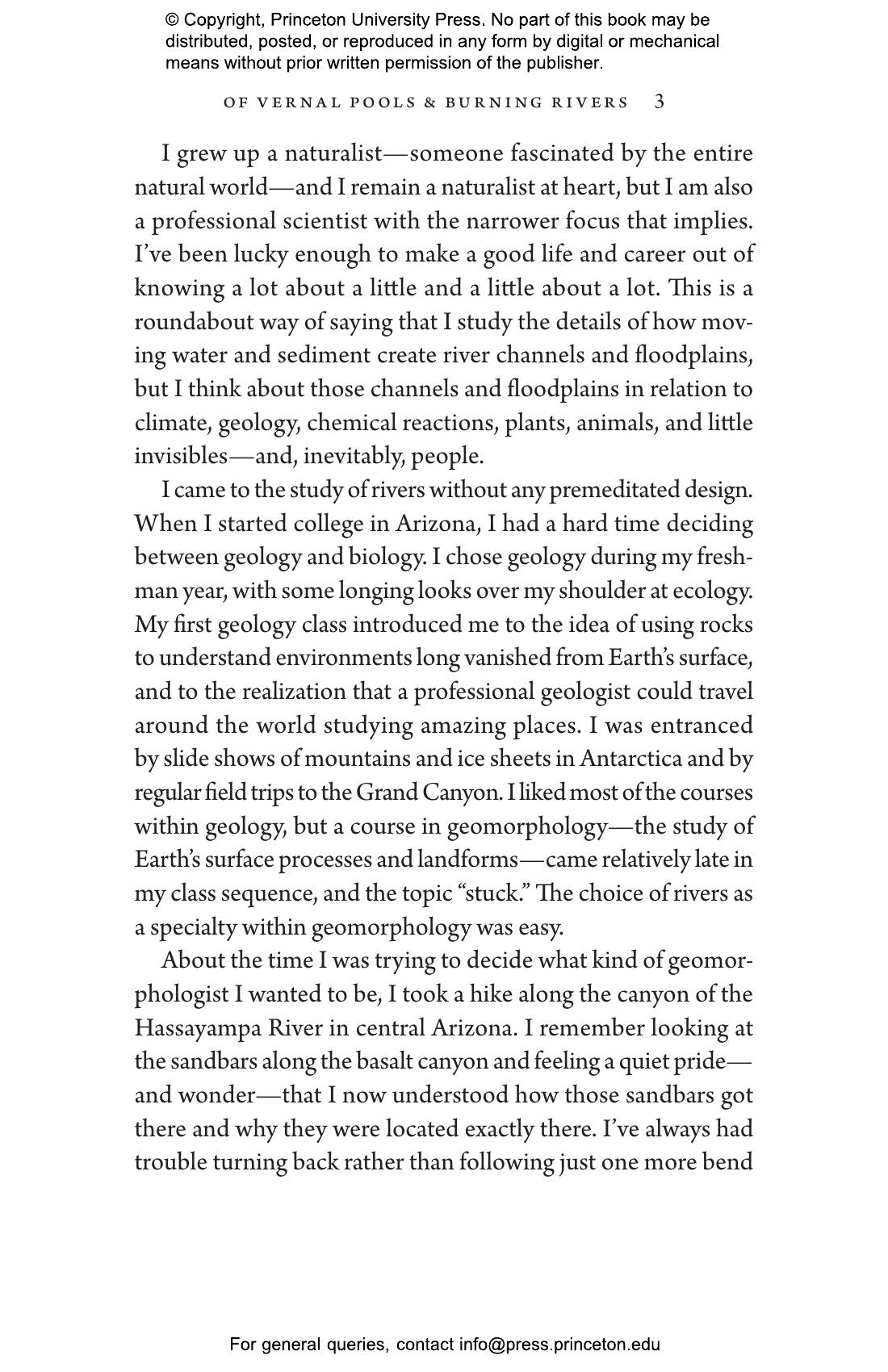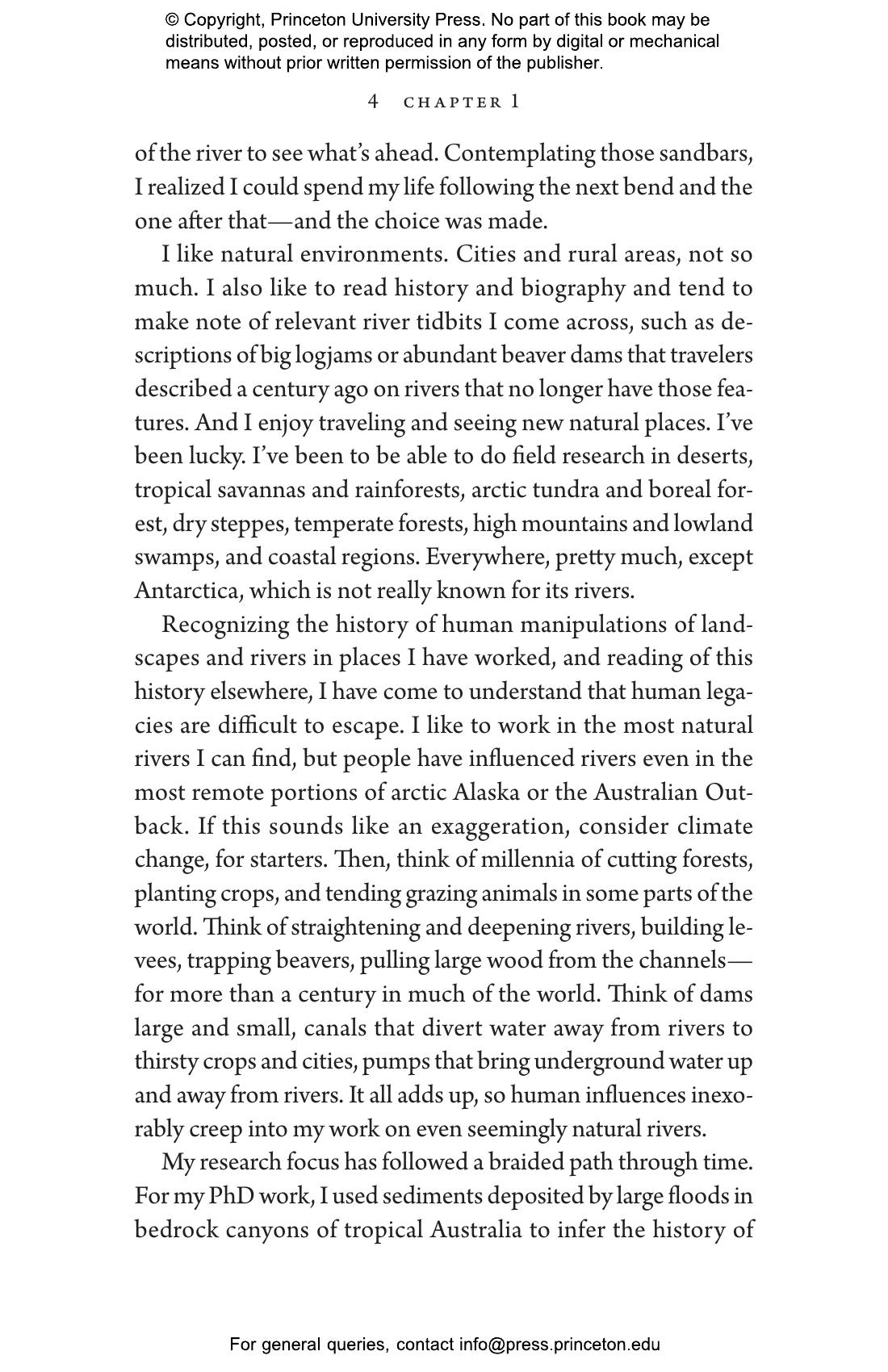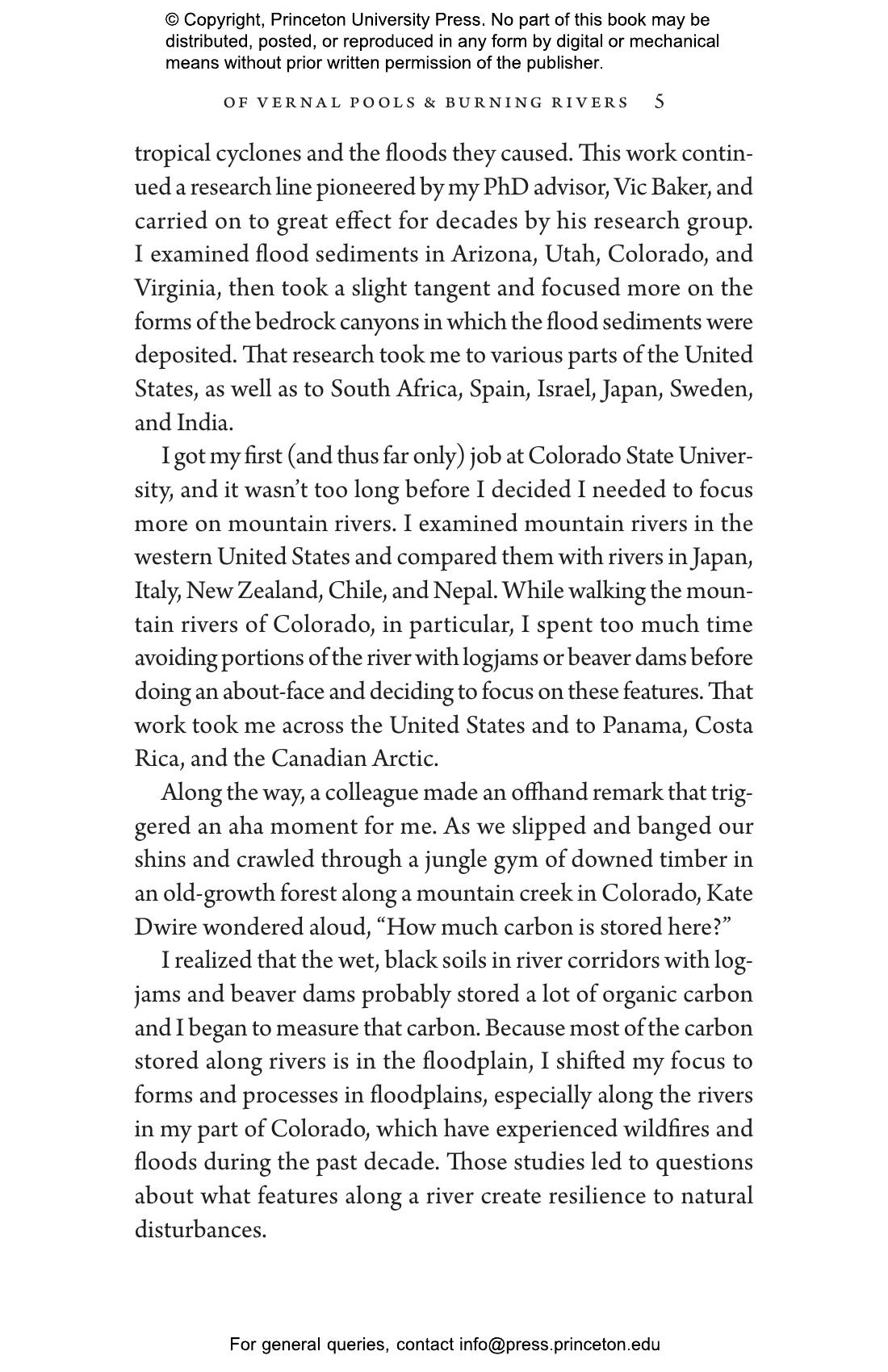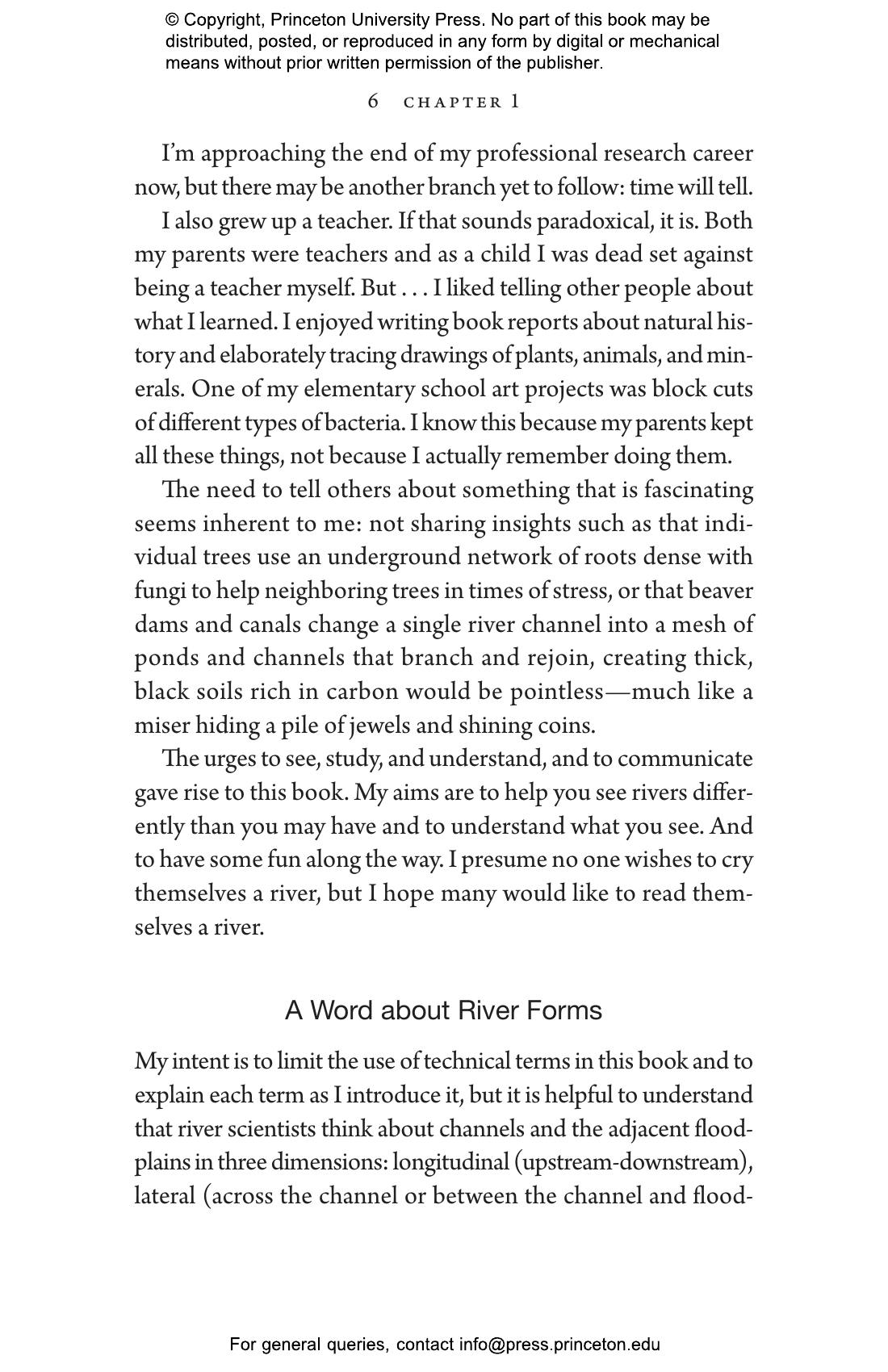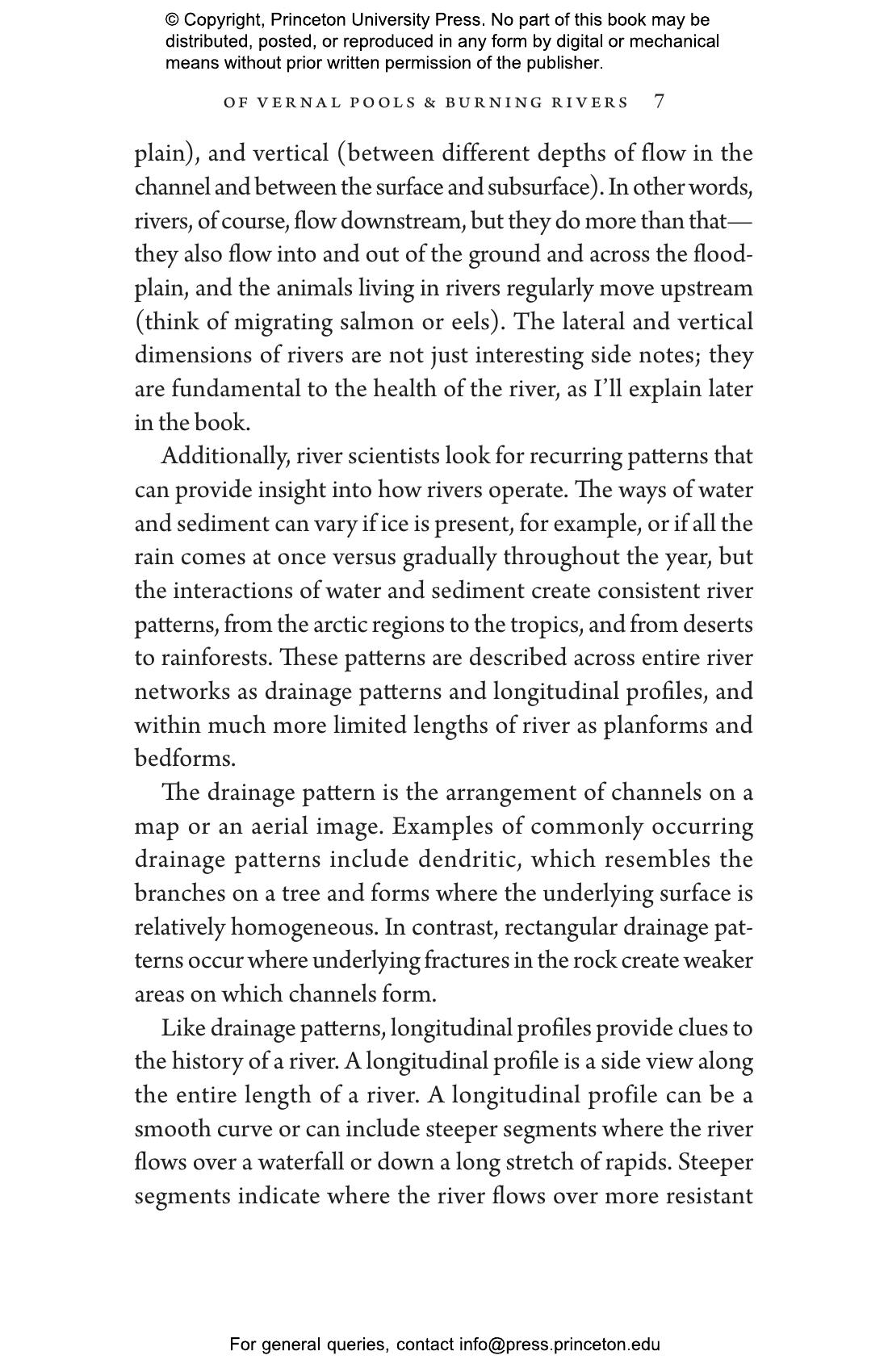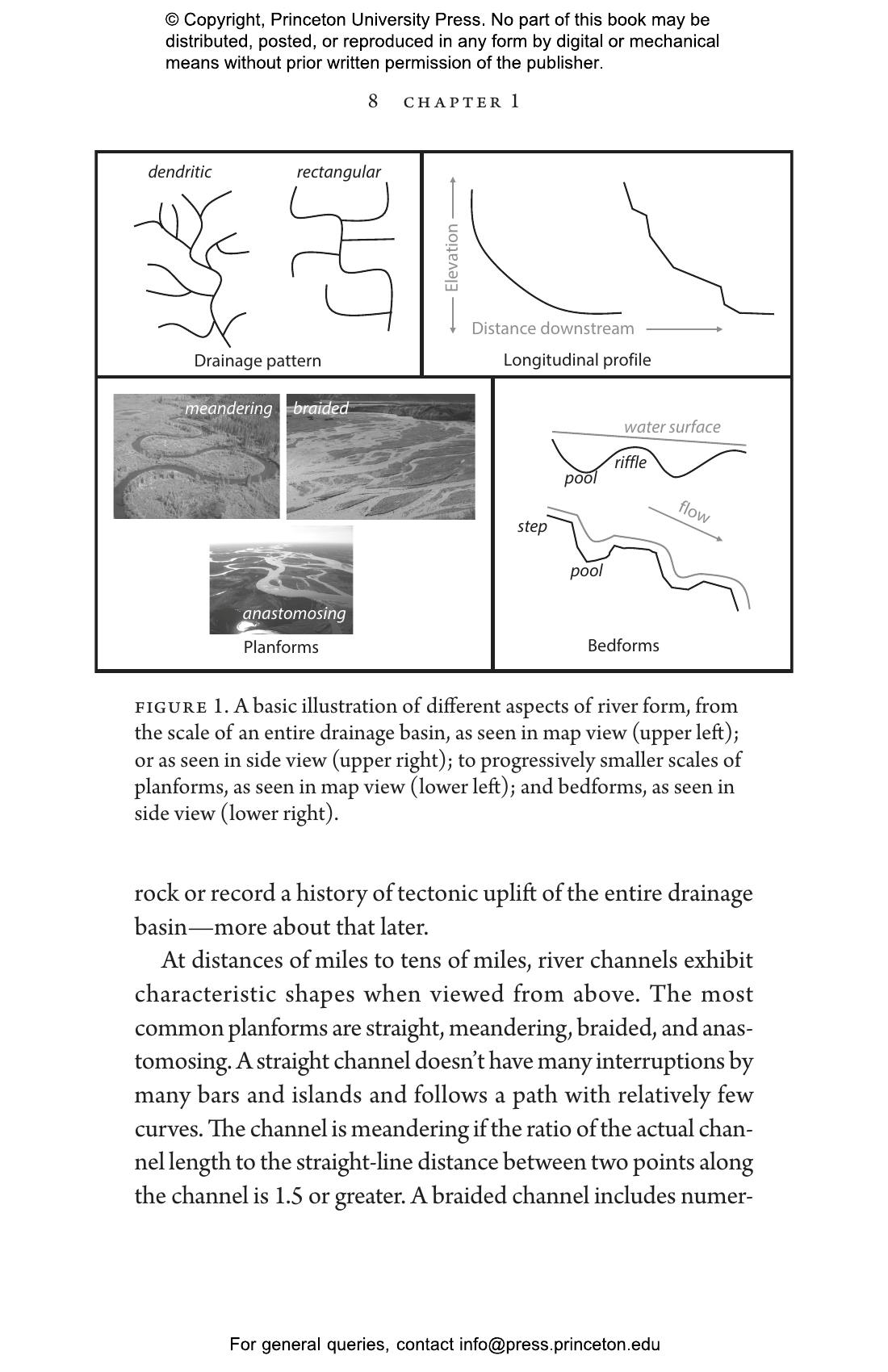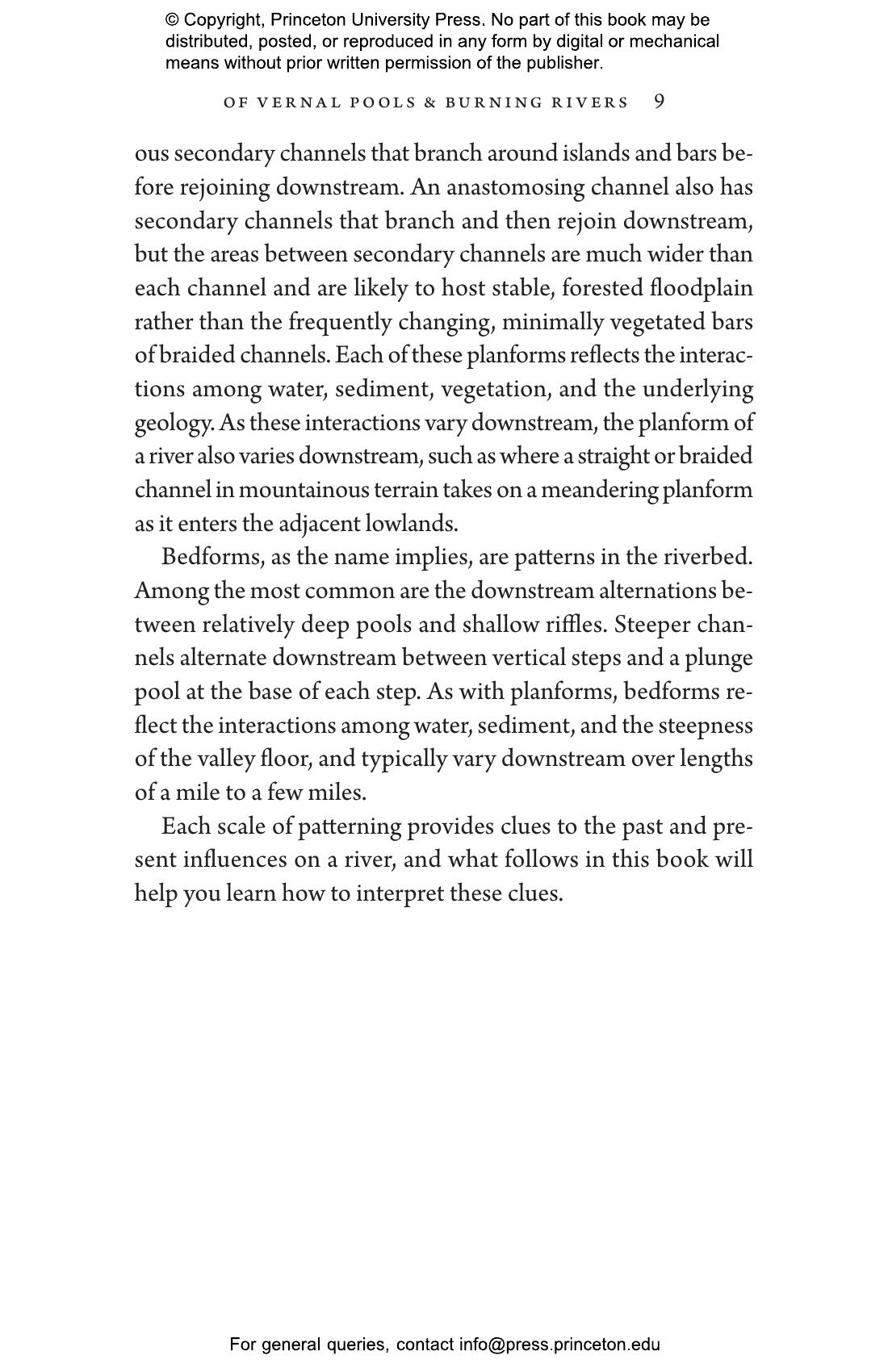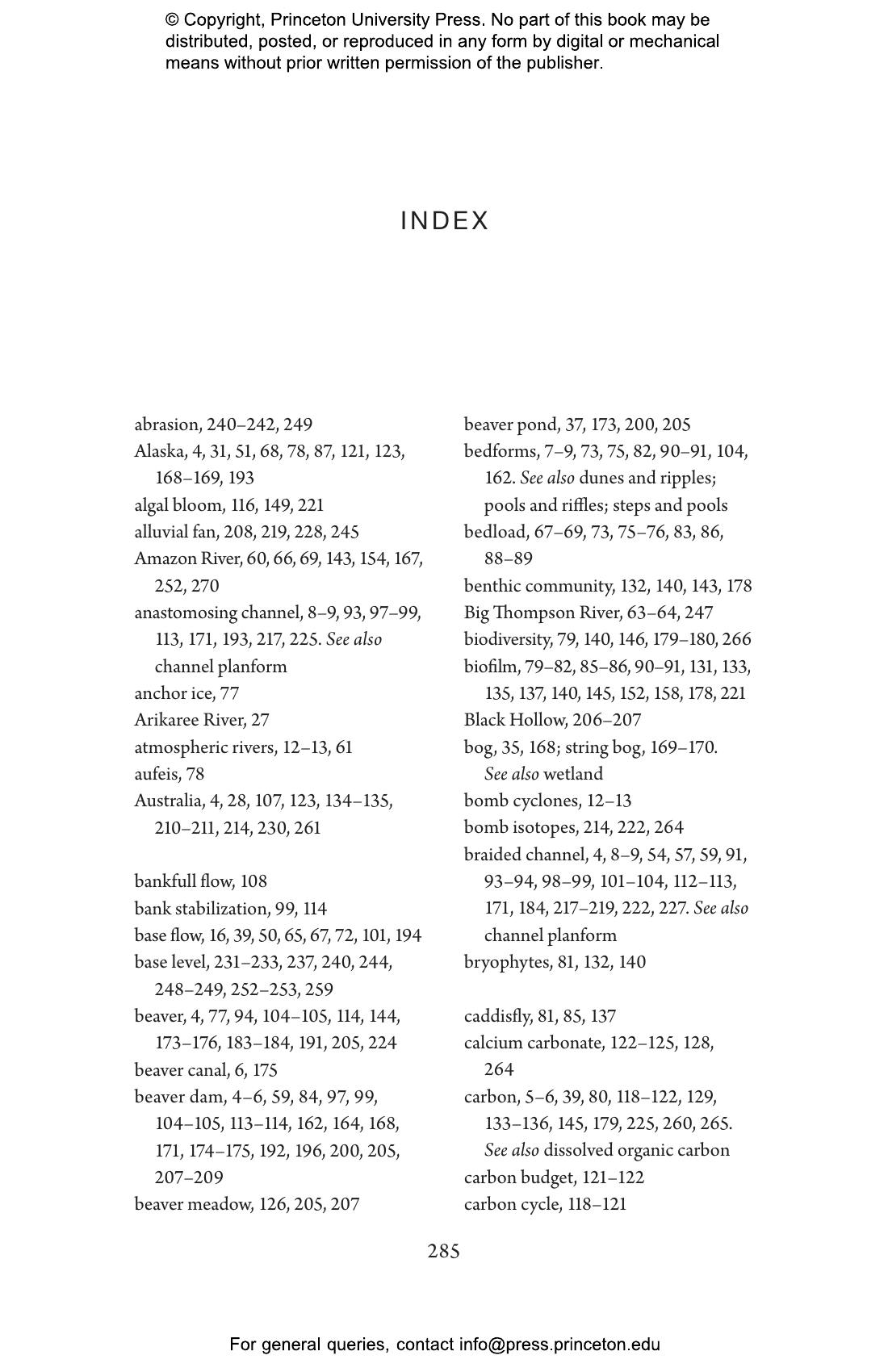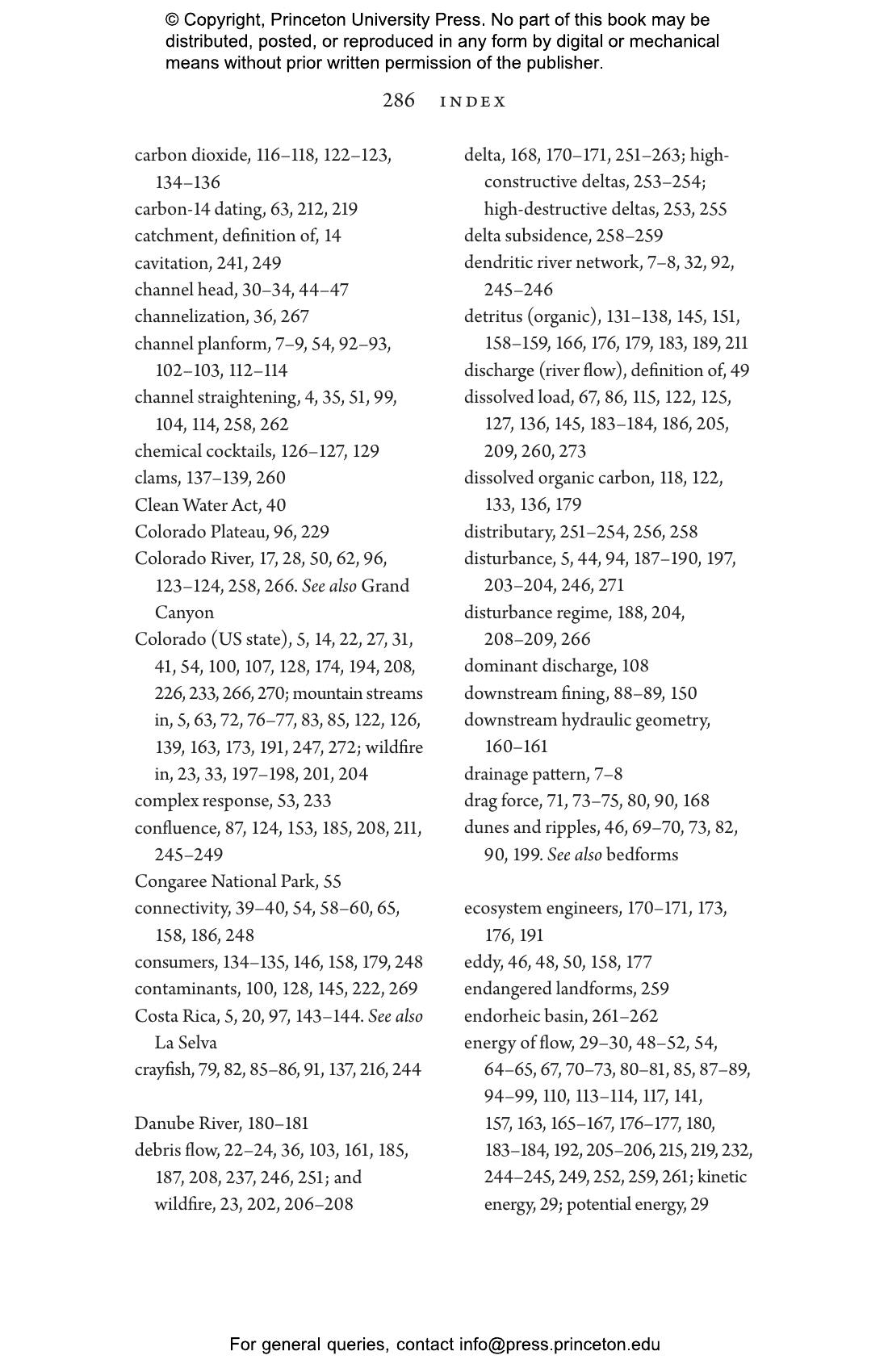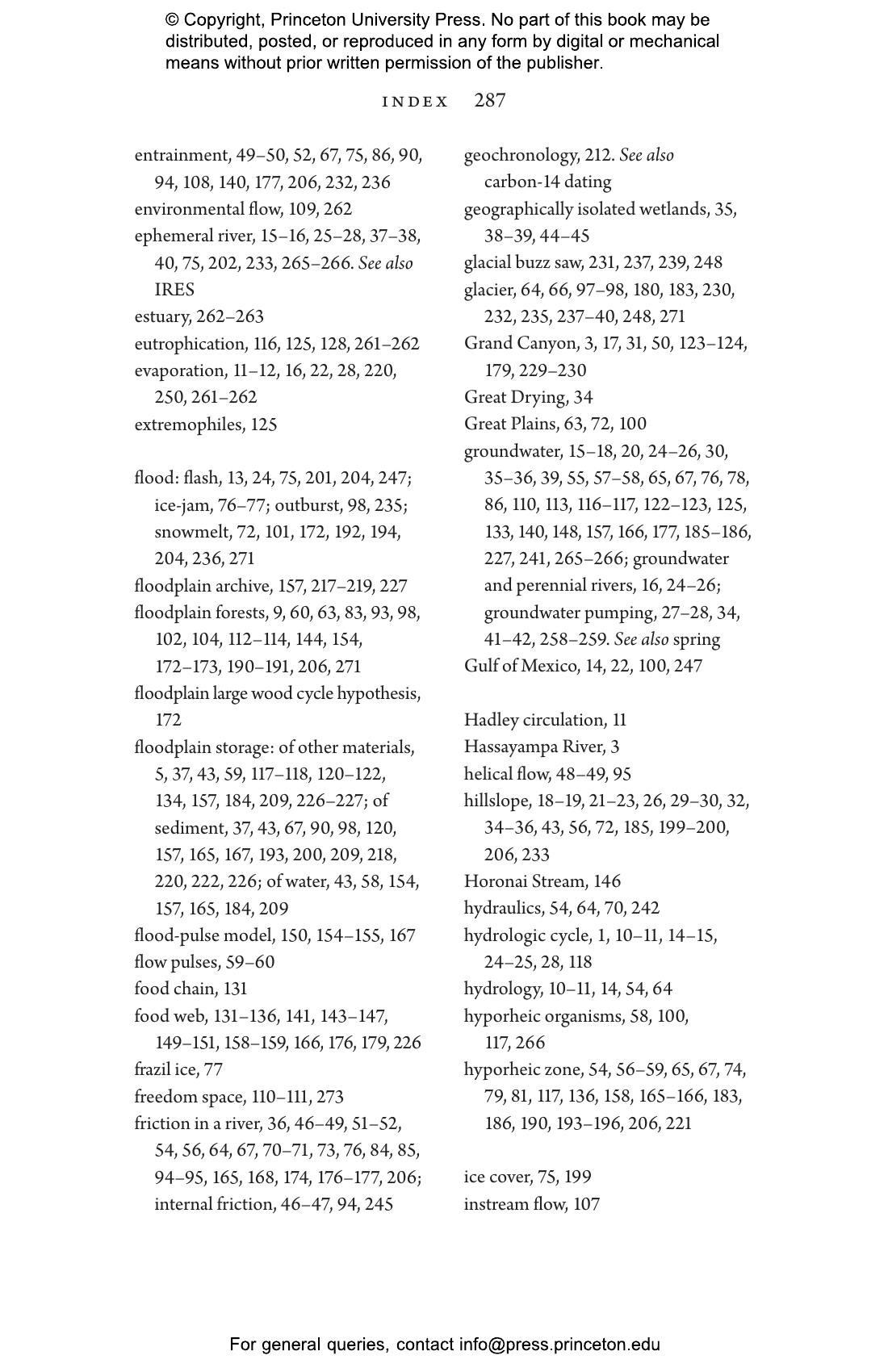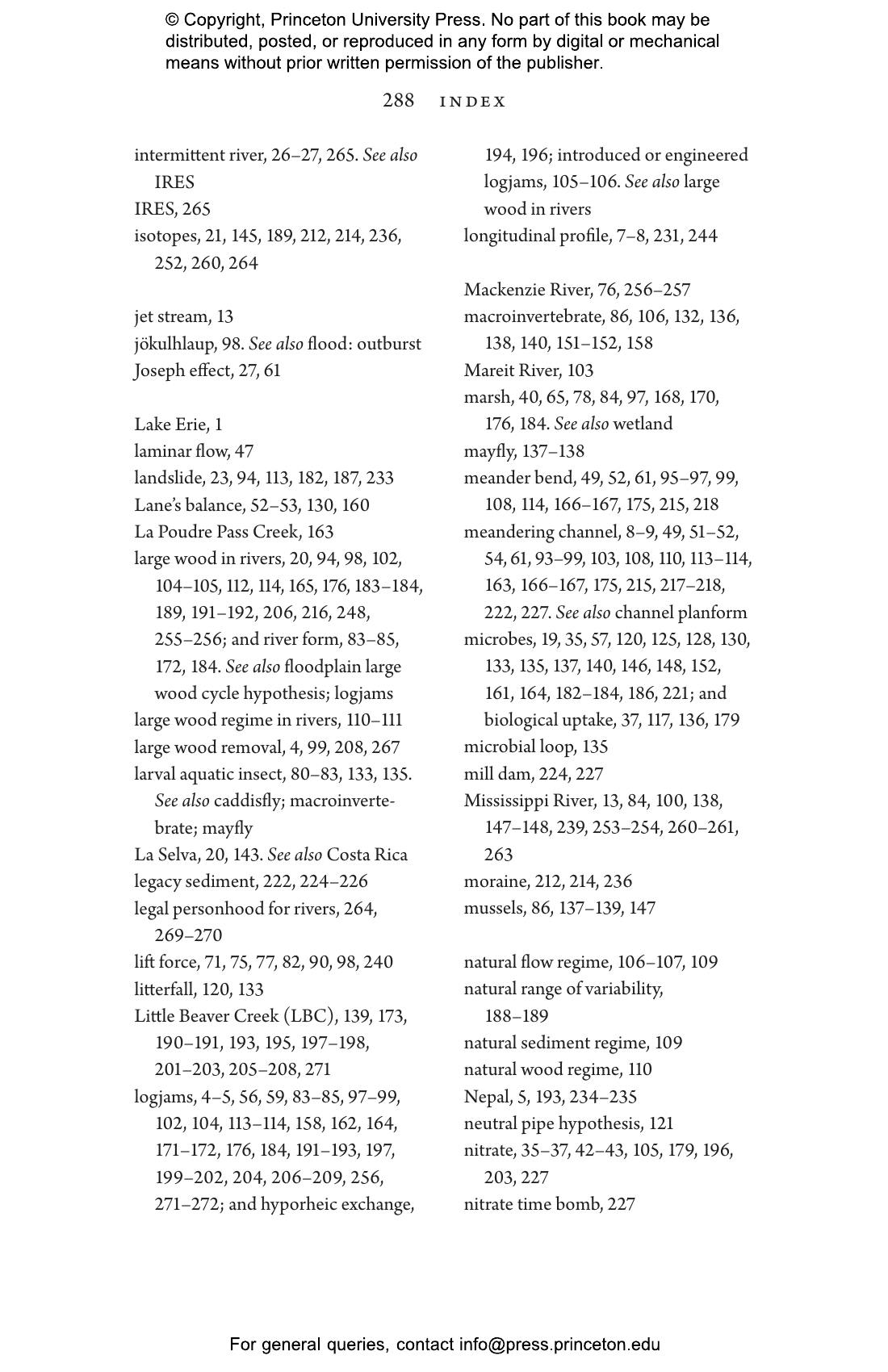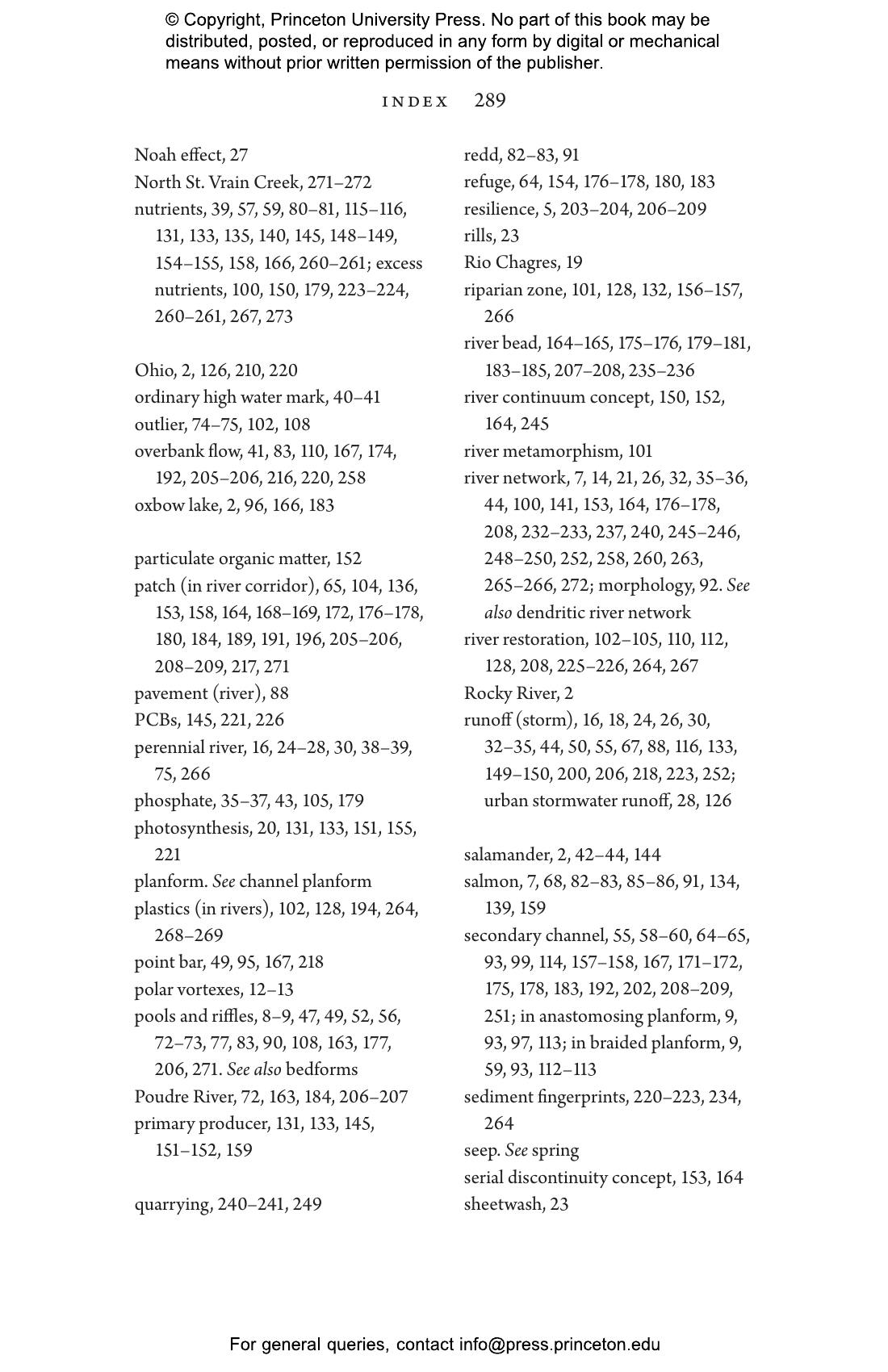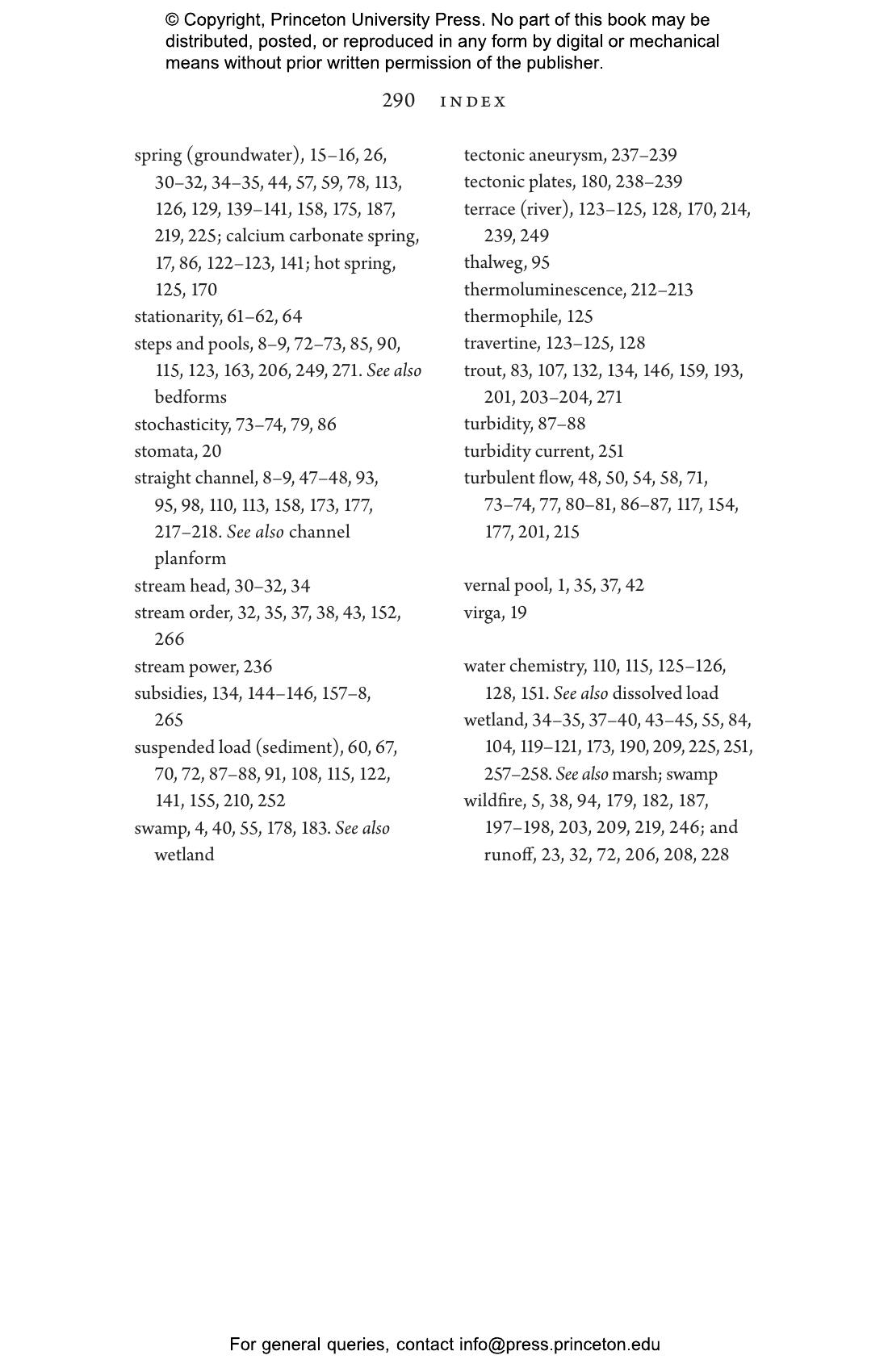When we look at a river, either up close or while flying over a river valley, what are we really seeing? Following the Bend takes readers on a majestic journey by water to find answers, along the way shedding light on the key concepts of modern river science, from hydrology and water chemistry to stream and wetland ecology.
In this accessible and uniquely personal book, Ellen Wohl explains how to ÔÇťreadÔÇŁ a river, blending the latest science with her own personal experiences as a geologist and naturalist who has worked on rivers for more than three decades. She charts how water travels through the hydrologic cycle around the globe and downstream to distribute energy, move sediment, and shape river channels, and how living organisms adapt to life in flowing water to create vibrant river ecosystems. Wohl looks at the role of disturbances such as floods and droughts and discusses how geologists interpret the sedimentary records of past river processes. She illustrates how river networks interact with EarthÔÇÖs surface and considers issues for rivers in the future, such as progressive drying, river restoration, and advocating for the legal personhood of a river to maintain its distinctive spirit, identity, and integrity.
Sharing a new understanding of how rivers function as both physical systems and ecosystems, Following the Bend enables us to observe rivers with fresh eyes and more fully appreciate the beauty, vibrancy, and complexity of our planetÔÇÖs vital waterways.
"An impassioned guide to interpreting rivers. . . . [Wohl's] accessible scientific explanations alternate with lyrical passages that pack an emotional punch."ÔÇöPublishers Weekly
"Wohl's passion for her subject shines through throughout. . . . A thorough primer on understanding rivers."ÔÇöGenevieve Williams, Library Journal
"A veritable source of wonder for me. Ellen Wohl is a distinguished scientist who has received many awards throughout her illustrious career, yet in this book she presents herself as a story teller, delivering a pleasing combination of history, geography, geology, hydrology and personal recollection. . . . She eschews the use of arcane terminology unless it is critical to the text, but makes sure always to accompany it with an explanation when she does."ÔÇöDavid Gascoigne, Travels with Birds
“There is no better guide to rivers than Ellen Wohl. She is as adept at storytelling as she is at science, and Following the Bend is forever surprising, enchanting, personable, and, not least, clarifying. Read this revelatory book and you will find in the path of water an endless universe connecting geology, ecology, human history, and our future in one magnificent, ever-moving flow.”—Boyce Upholt, author of The Great River: The Making and Unmaking of the Mississippi
“Ellen Wohl writes beautifully. Following the Bend is a comprehensive but wholly accessible scientific guide, drawn from a life spent thinking about moving water and the ways it shapes the world.”—David Owen, author of Where the Water Goes
“Almost like a river in miniature, this book moves longitudinally, laterally, and vertically, traversing the intimate world of rivers by blending a lifetime of scientific knowledge with a deep love of riparian landscapes. From the impact of weather and climate to the intricate dance of water, sediment, and life, Following the Bend uncovers the stories carved and etched into every river bend, reminding readers of the essential roles of these waterways.”—Charlotte Taylor Fryar, author of Potomac Fever: Reflections on the Nation’s River
“If you’d like to take a year’s worth of classes about how rivers function—but you know you never will—this is the book to read! Sit down with Ellen Wohl and learn what we need to understand about the water that flows all around us. From the backyard creek to the Amazon, you'll gain greater appreciation for the essential arteries of the earth.”—Tim Palmer, author of Seek Higher Ground: The Natural Solution to Our Urgent Flooding Crisis
“In Following the Bend, Wohl delivers a highly readable and personal account of the form and functioning of rivers. Exploring the intricate interactions of rivers with time, space, climate, landscape, the sea, and life-forms—including humanity—this is a must-read for all fluviophiles, professional and otherwise.”—Eric B. Taylor, author of Rivers Run Through Us
“A thoroughly appealing book about rivers and how they flow and change. Wohl seamlessly blends her personal experiences with the science of rivers in an accessible way, drawing broad connections between the multifaceted aspects of rivers across space and time. I thoroughly enjoyed this book, as will other readers who enjoy rivers recreationally, appreciate nature, or are just interested in natural phenomena.”—Stephanie L. Shepherd, Auburn University
“Wonderfully engaging. Wohl’s storytelling is rich with the deep insights about rivers that she has cultivated over decades of research, fieldwork, and experiences.”—Joann Mossa, University of Florida


